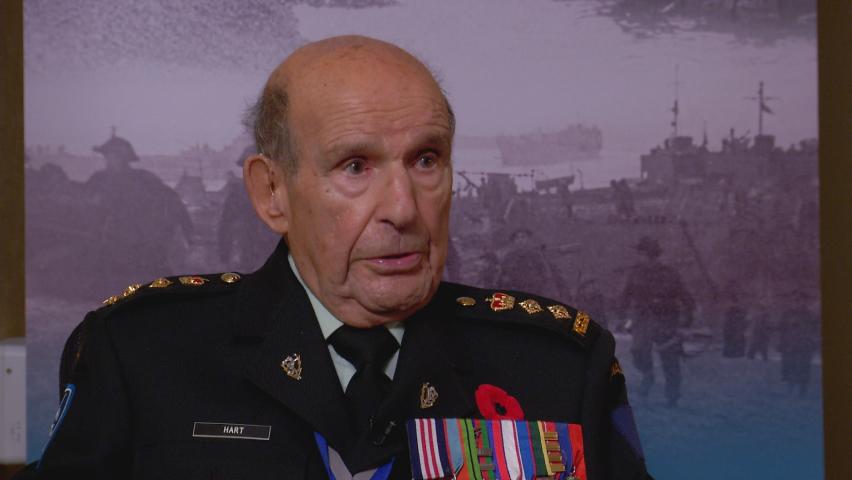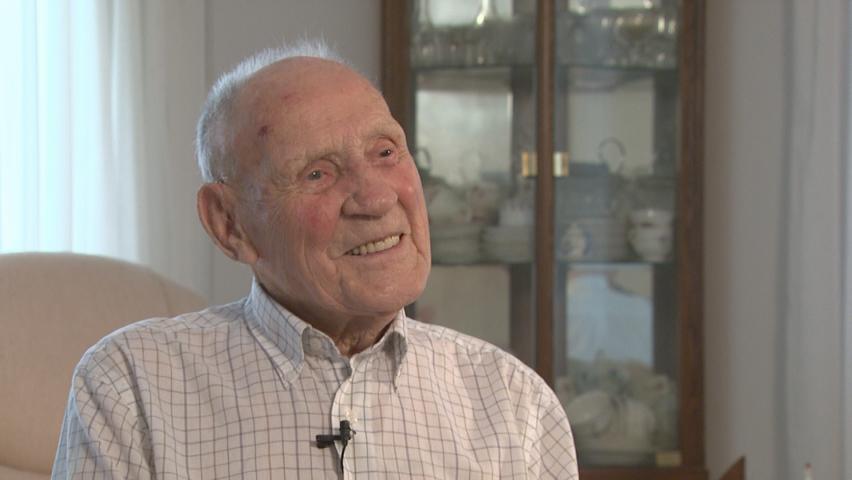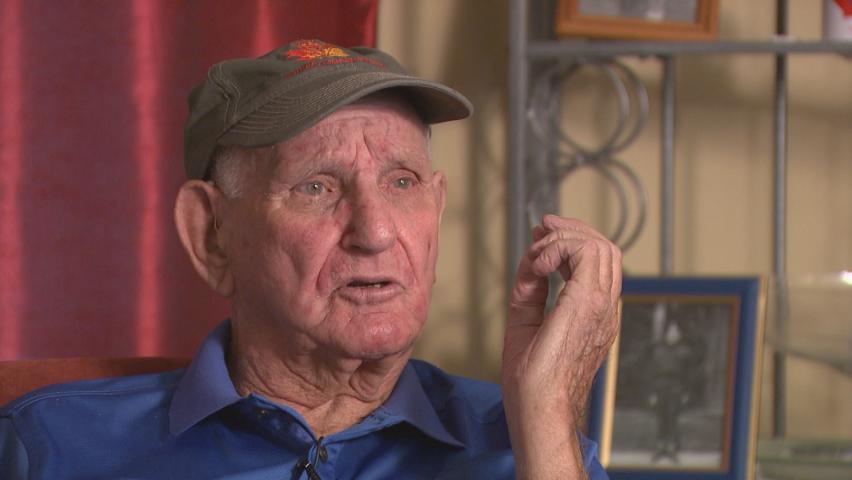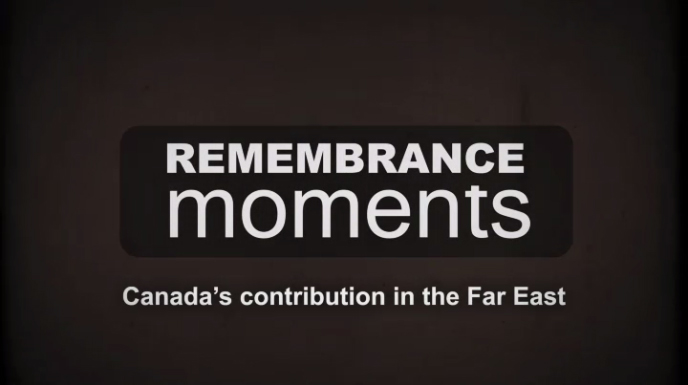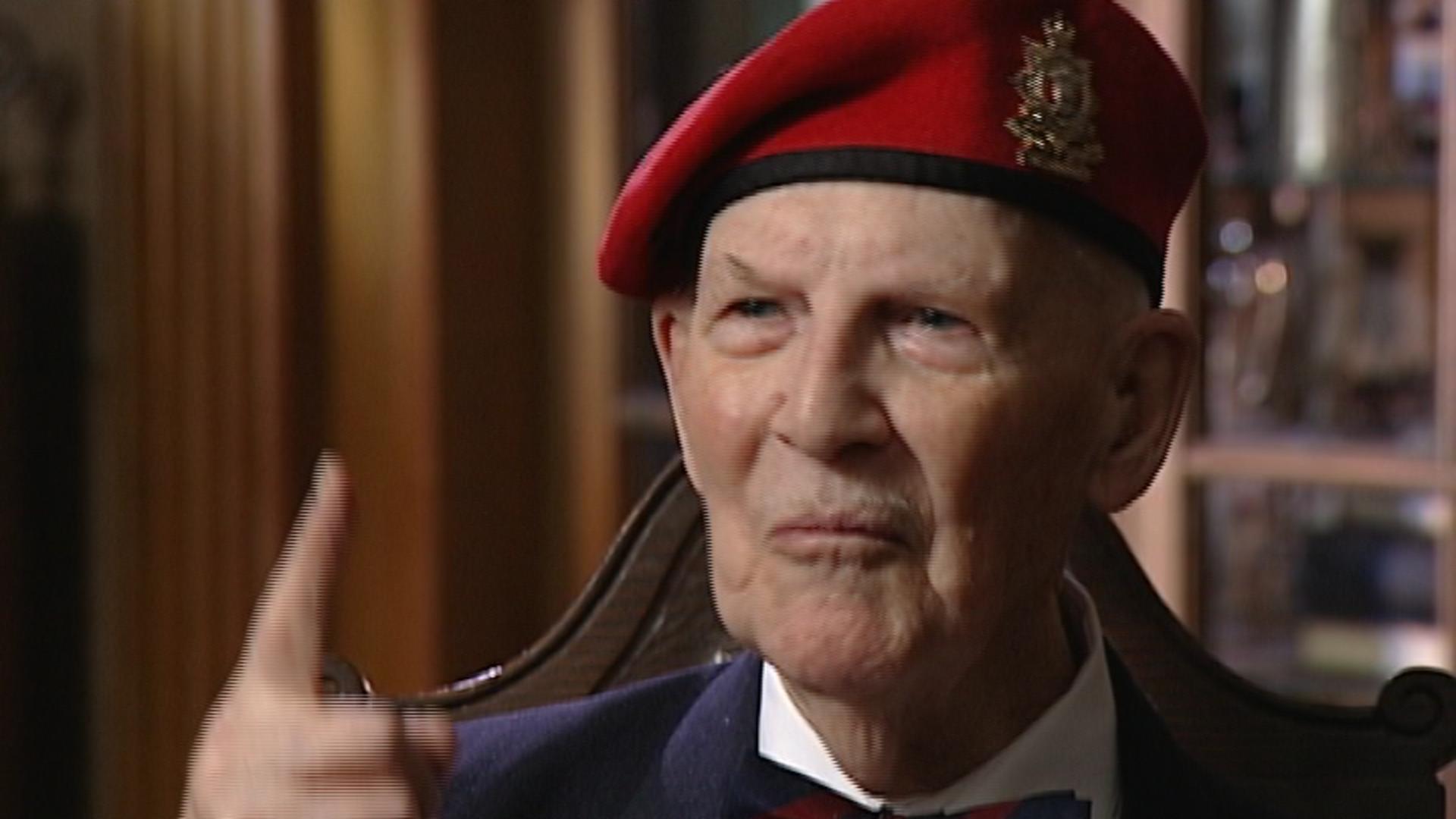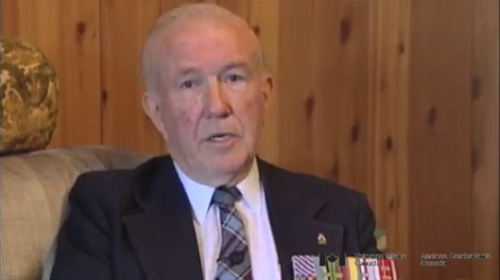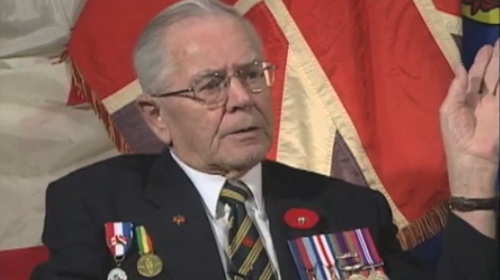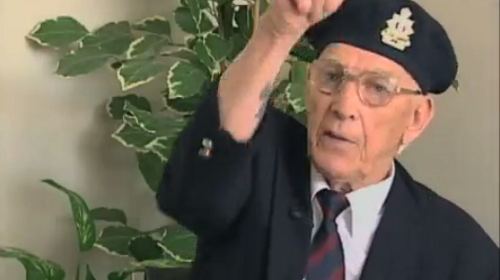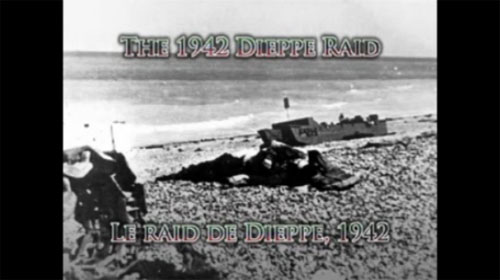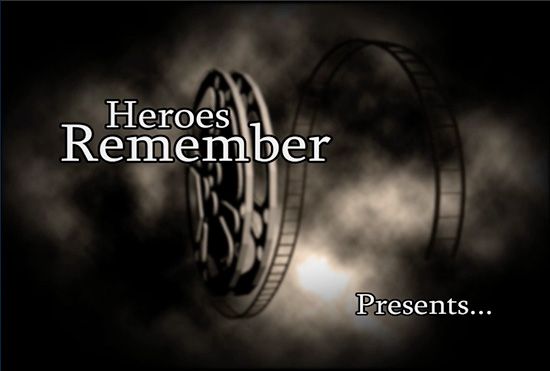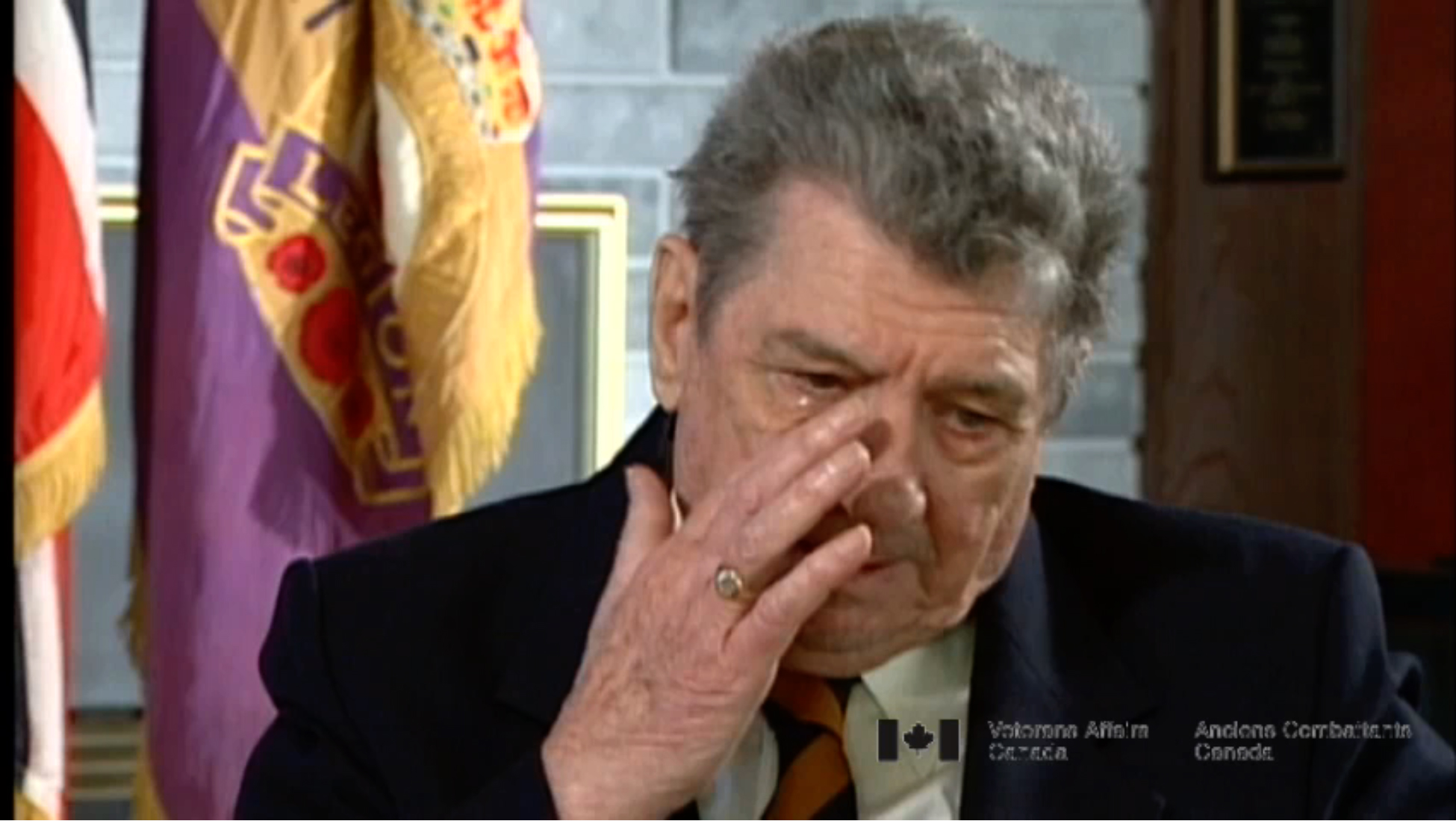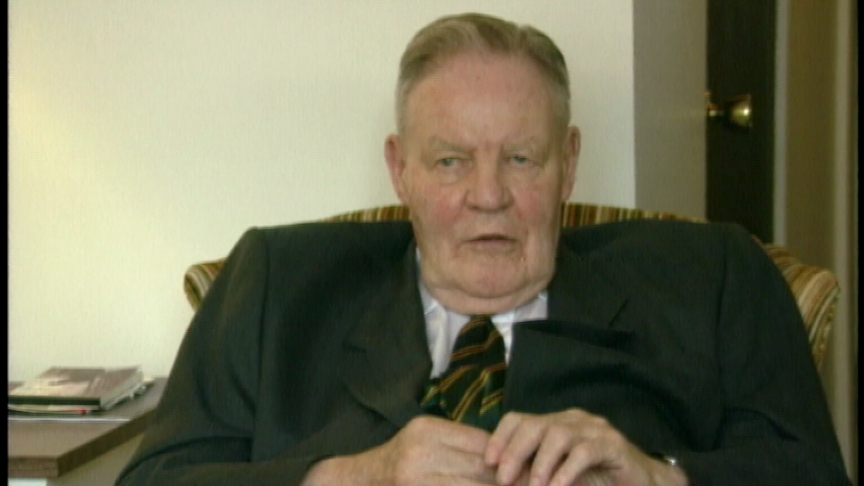Remembrance
Heroes Remember
Remembrance
Transcript
Landing craft approaching the beach head.
Soldiers walking up the beach.
see that kid laying there. He was just about your age, you know.Injured soldier being carried out by stretcher.
Depends on who you're talking to. And I think Armistice Days now, it's a continuation through the years, and every year it's improved. This year, the gym was fully filled with parents, dependants and kids. The kids do a lot of the writing themselves and it's a terrific job, and they're to be congratulated. So, that's what remembrance means to me, and you think back, you think of your buddies, that's not there. Oh, a half-brother of mine was killed in Vimy. Interviewer: Oh? Yep. And when I was stationed in France, I found his grave up in Arras, the village below Vimy. And the, the wife was alive at the time. We have three kids and we took them up there. I found the grave.Description
Mr. Goodeill discusses the importance of remembrance, and passes on his appreciation for the work done in schools.
Joe Goodeill
Mr. Joe Goodeill was born in Saint George, New Brunswick, in 1917. When war was declared and men began to sign up, Mr. Goodeill followed suite and enlisted in the air force. After several months of training he was stationed in Halifax and had the job of ushering airmen overseas, returning with civilians or VIPs seeking safety in North America. When the war ended Mr. Goodeill remained with the air force, serving mostly as a drill instructor and eventually retiring in Whitehorse, Yukon Territory.
Meta Data
- Medium:
- Video
- Owner:
- Veterans Affairs Canada
- Duration:
- 03:04
- Person Interviewed:
- Joe Goodeill
- War, Conflict or Mission:
- Second World War
- Branch:
- Air Force
Related Videos
- Date modified:



